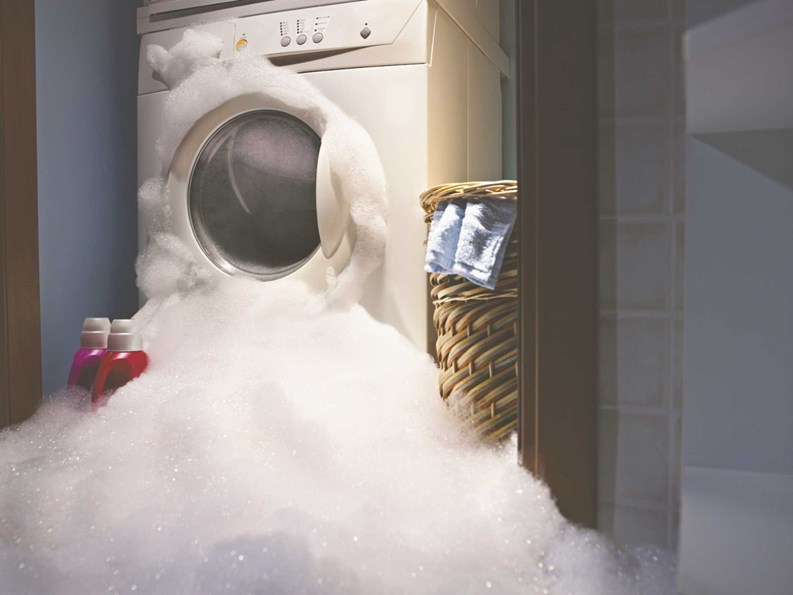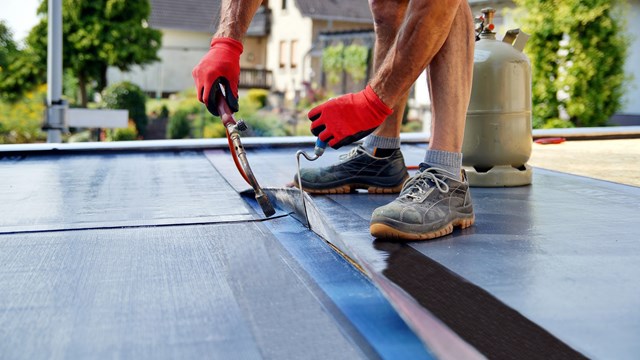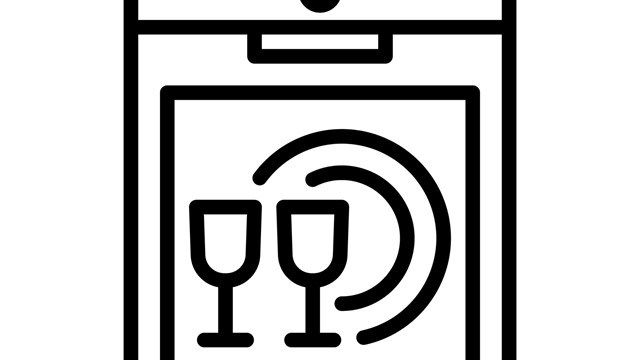In an online forum, Sharon complains about her upstairs neighbor and begs for advice. Her neighbor had installed a washing machine in her unit, even though there was one already downstairs for the residents of her six-unit building to use. As a result of the neighbor’s improper installation, her appliance overflowed, resulting in a flood of water that came pouring into Sharon’s unit through heating and air vents. Now, Sharon’s wall-to-wall carpeting is ruined and she’s concerned about mold and other damage.
Amenities, Amenities, Amenities
While having certain appliances, such as washing machines, dryers, dishwashers and trash compactors in the units is a very attractive feature for a condo or homeowner association residents, these conveniences do occasionally cause leaks, noise and vibration issues between residents, and can also create a major fire risk. There are definitely pros and cons to having in-unit amenities.
“On one hand, it provides a convenience to the resident, because they don’t have to go to the common laundry room and share the machines,” says Kenneth M. Lovett, president of John B. Lovett & Associates, Ltd., a management firm in College Point, N.Y. “On the other hand, these appliances can cause suds to back up in the line, cause bubbles to appear in the toilet or sink of a lower floor, and cause floods. And, for dishwashers, having them vented out of the window is just not attractive.”
Improper installation and misuse of these amenities may also cause damage to the individual unit as well as neighbors.
“Water and mold are huge problems,” says attorney Cameron C. Pease of the law firm of Goldman & Pease in Needham, Massachusetts. “Let's say you're on the third floor and you have a washer that overflows. It doesn't just affect your unit, it affects the next unit and the units below. Same with mold, it may start with your unit, then grows to common areas and other units. Other issues are noise and cost; some residents might have a loud appliance that is making a racket. And if you have shared utilities and you have one person that is washing clothes all the time, that will run the utility bill,” he says.
That’s exactly what bothered another unit owner. He lives in a condo and explained in an online forum how a broken pipe from a dishwasher installed in the apartment above caused water to flow into his newly-renovated unit. The kitchen was destroyed and there was water damage in almost every room of the apartment and, he says, in almost every unit under the upstairs unit.
Water and mold damage, if reoccurring can be detrimental to a building's insurance policy.
“There are two things that insurance companies hate that are really related to in-unit amenities. One is mold, the other is water, which come from these units. The majority of condos do allow in-unit amenities because people like the benefits of them. People want to have washers and dryers and the restrictions can also have a very negative impact on the marketability of the unit. They don’t have too much effect on the premium unless you end up submitting a lot of mold or water damage claims. That is where it becomes an issue. If you’ve had repeated problems over and over again, then your premiums will go up—or worse, you will have an insurance company that won’t renew,” explains Pease.
To Ban or Not to Ban?
When the cons outweigh the pros, an association’s board of directors or managers may be inclined to place a ban on certain amenities in order to better protect the property.
“A board may disallow or regulate appliances because of the risk of water leakage. This risk would be especially of interest in a high rise condominium scenario,” says attorney Maurice L. Stone, a partner at DeCotiis, FitzPatrick & Cole, LLP in Teaneck, New Jersey. “Other factors would be noise and/or vibrations emitting from the appliance or the electrical needs of the appliance.”
However, in order to properly enforce the ban and mitigate any counter legal action, it is imperative that the board address the issue properly.
“The master deed of the condominium would normally contain a provision permitting the board to adopt rules and regulations that would govern this situation. In the absence of such a provision, the master deed would need to be amended to permit the board to regulate this issue. Amendment of the master deed would require approval by the unit owners; a super majority vote is generally required to amend a master deed,” says Stone.
And, he adds, “if the board does not wish to totally ban these amenities, they may require the unit owners to provide condominium liability insurance naming the association as an additional insured. The board should also provide a list of approved contractors who each must meet certain insurance requirement to perform plumbing or electrical work. As an added protection, the board could have its own contractor inspect and approve the installation of the appliance, at unit owner’s cost.”
Even if the bad is successfully adopted, who is going to police it?
“It’s up to the building staff,” says Peter Lehr, director of management for Kaled Management in New York City. “The staff has to be aware if they go in to the unit to make a repair or check on something. A good super should be looking around and making sure nothing is out of place. I always tell my guys when they go in to check on dripping faucets because it can save thousands of dollars and when they are looking around, look for things that don’t seem right.”
Pease adds that boards can choose to fine residents who do not comply with the changes.
Coming to a Compromise
Banning amenities may lead to legal headaches and community disagreement on how to proceed.
Stone says that a better approach would be to establish certain parameters for installation, restricting the types of amenities that can be installed.
“The in-unit appliances should be subject to reasonable restrictions, such as noise dampening, added subfloor, padding, or carpeting for noise and vibrations and a catch basin for water beneath the appliance. The location in the unit can be stipulated to be in certain areas so that a laundry room, water heater, kitchen or bathroom must be located in the same stack. Also, the installation must be by an approved contractor and the board should have its own contractor inspect and approve the installation of the appliance,” he suggests.
Pease agrees, adding that boards will be more successful in avoiding the common problems encountered with in unit amenities (such as water and mold) if they regulate what types of amenities are installed and who can maintain them.
“If you start banning people of things they already have been doing, they are much more likely to challenge it in court. Instead of an outright ban, [boards] can try to address it through certain rules and regulations. If water overflow is a problem, they can put in certain rules and regulations that they will only let licensed plumbers put in the washers or require the new water efficient that can run on 10 gallons of water in a rinse cycle or some require residents to use low-suds detergents be used so they don't clog the drain pipes,” he says.
Prevention is Key
Communicating with residents about keeping appliances in top working condition is also imperative to preventing any damage. Make sure residents don’t try to fix appliances on their own. “I've seen times where problems arise where the residents try to fix the dishwasher by yanking it out of the wall, which can breach the gas pipe in the back of the appliance. When they call [the utility company], they come in and can shut the whole building down. One such time it happened, the building spent around $125,000 making construction changes to get the building on again,” Lovett explained.
When communicating with your residents, Lovett also says to be sure to spell out in any renovation agreement what is allowed and not allowed to be installed on the remodel.
“Also, if a building is going to consider letting residents add dishwashers or washing machines in their unit, they should also check the building infrastructure to make sure it’s not problematic,” he says.
Lisa Iannucci is a freelance writer and a frequent contributor to The New Jersey Cooperator. Editorial Assistant Maggie Puniewska contributed to this article.










Leave a Comment